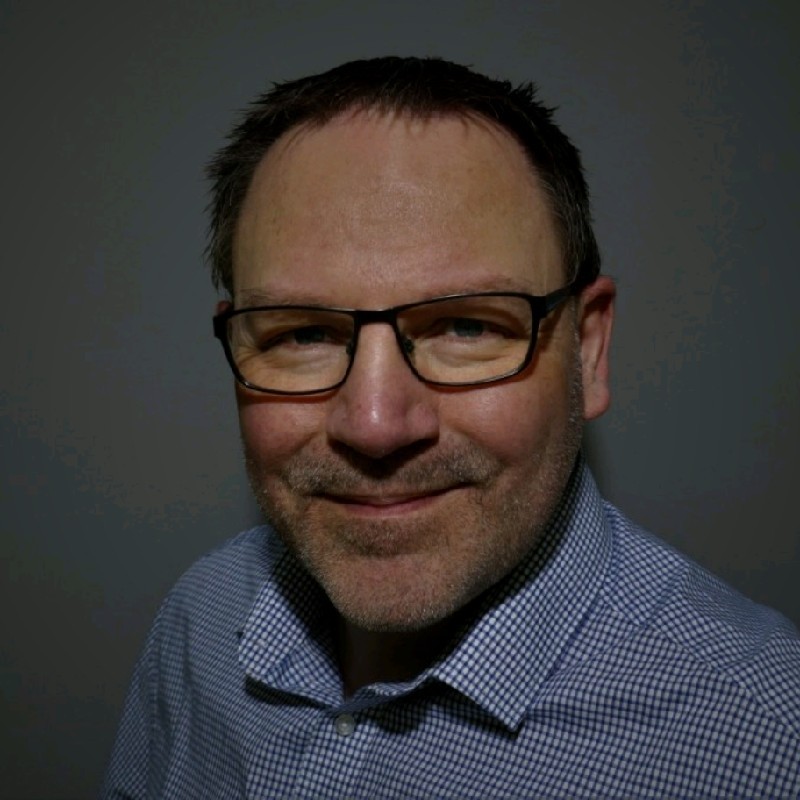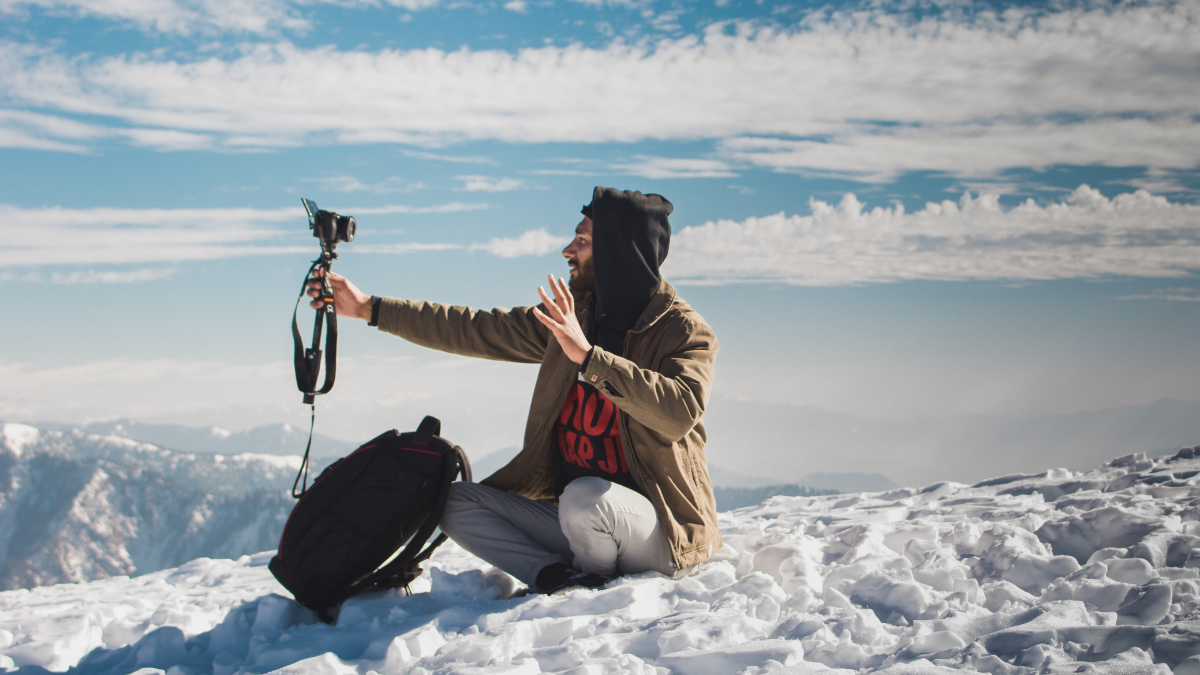In 2016 I started a YouTube channel. Why and what it was all supposed to be about we’ll get into as we progress. What’s important is by any YouTube measure I was a complete YouTube failure. The critical thing is those are YouTube’s measures.
I’ve come to realise that those measurements of success were not mine.
You? A YouTube Channel?
I started the YouTube channel in September 2016. The initial purpose was to give my flirtations with solo travel after my divorce a sense of purpose. This worked with the camera being the extra person I brought along. Then it entered a series of experiments where I tried weekly vlogging, getting into media discussions and things meandered around all over the place which is not good for growth.
It has meant I’ve removed almost as many videos from the channel as remain live.
I then made a few focused attempts to master the range of skills needed to nudge the metrics and deliver a proposition that would grow. My goal was modest. I wanted to get to a community of 20-30K subscribers with a healthy comments section. Regrettably, I never got close to that goal so on that basis it was a failure by even ‘small channel’ YouTube standards.
Why it wasn’t a failure
It wasn’t a failure because it delivered significant self-improvement. Once you get past family, relationships and issues of life & death the biggest influences on me as a person are: –
- Education (particularly my MBA, maybe we’ll cover that in the future)
- Career
- Hobbies (maybe we’ll come back to this in a future post about storytelling)
- YouTube
The reason YouTube is on the list is the experience of trying to grow a channel is a harsh mirror. YouTube reflects back at you with precision what it means to deliver to an audience, backed up with harsh metrics that never lie, as well as how you might be coming across to others in a way that is so insightful it’s scary. This makes YouTube a sort of self-discovery accelerator unless you lack any sense of self-reflection.
What follows are the specific reasons I don’t view it as a failure.
It’s a marketing boot camp
YouTube is a harsh, marketing crucible and the product that is being judged is yourself. This is especially true if you choose to be in front of the camera. Even if you can get a bit of distance from the lens it’s certainly the direct product you are creating that is being judged.
This means anyone who is working in marketing but isn’t a marketing strategy expert, should try and master the skills behind a successful YouTube channel.
You rapidly have to understand the below and this isn’t a complete list: –
- What is your brand and content and why is this interesting to an audience?
- Who are this audience and do you understand them?
- Will you get the audience you intended or not?
- Can you create thumbnails and titles to get people to click?
- Can you create videos that hold the viewer’s attention?
- What story is all this telling across the whole and in the moment?
- Can you understand and dissect all the metrics and pivot accordingly?
If you were to ask me if this has a lot of similarities to my current role in digital marketing then you’d be correct. Unless you’re putting zero effort into trying to nudge the meter you’re in a hardcore digital marketing 101 Boot Camp.
What did I learn?
I’m not going to accept a marketing strategy role any time soon, but did the whole YouTube process give me a personal experience of the decisions that digital marketers are making day in and day out? Of course, it did. When you’ve tried to create clickable titles and thumbnails for YouTube the whole engaging subject line question in email marketing becomes a whole different conversation even if you’re leaving it up to the expert to recommend them. That is just one, simple example of many.
It also expands your storytelling skills. This is something that isn’t that new to me due to all the media and books I read and my involvement in hobbies that involve storytelling, but YouTube takes it to another level. Depending on the video you have to architect a sufficient story to maintain engagement with the video across its run. I’m not saying I fully mastered that but it was a very interesting journey experimenting with it as best as I could. It’s the one area I miss and the likely area I’d return to making videos for.
Essentially, to succeed at YouTube you become your own personal marketing strategist.
It tells you who you are
You know those episodes of science fiction and fantasy TV shows where the writers’ use some sort of fantastical narrative convention to look into the truth of who the protagonist is? Well, that’s YouTube.
– Ian O’Rourke
YouTube is a psychological test and that psychological test is one of repeatedly failing and being told so in meticulous detail. You may or may not understand fully why you are failing but without fail the experience asks you with each video: are you going to quit yet?
It is literally the try, fail, break things and learn philosophy in a microcosm but you can at least say it gives you clear measures to master that tell you why.
Many people quit YouTube before the learning kicks in because the process is brutal. It’s not for those who want to post videos and be a 100K+ channel (and in YouTube terms that’s still small) overnight.
You will fail. You’ll not know why. You will be posting videos feeling like a fake. You may be embarrassed that you’re spending so much time on this endeavour for 30 views. You may progress to one skill only to discover another one of many you need to master. So you keep failing. You can’t just blunder through it you have to deep work this stuff and put up with a lot of failures in an environment where you are potentially putting yourself out there creatively for judgement.
What did I learn?
Since I did have a goal for the channel the constant failure to trend growth towards that goal was psychologically challenging.
You often start very far away from it and this was all being done before the promise of AI doing it all for you, allegedly. Failure. Failure. Failure. Worse, people would advise you on what you should do but obviously, in implementation, you lacked understanding and you fail again. Grueling.
You have to learn to be able to put yourself out there and fail for a long-time while always having some level of self-belief you can learn what’s required to nudge the meter maybe a little bit every video. What surprised me is my locus of control and belief I can nudge the meter with the application of thought was strong enough to keep me learning and retrying for quite a while.
It’s a character study. It’s literally the closest many of us will be to an entrepreneur trying to launch his personal idea as a successful business. Learning in a long, protracted cycle of relative failure is hard to endure but you do learn from it.
Looking at yourself is brutal and revealing
I started YouTube as someone who didn’t even like getting their photo taken and ended up being the person who can look right down that camera lens and speak to you with a natural sincerity.
– Ian O’Rourke
Let’s assume you’ve put yourself in front of the camera because that’s what I did and because it maximises self-discovery. Everyone should spend some time filming themselves on a regular basis.
You may find it painful but it is transformative.
The camera does and doesn’t lie. It doesn’t lie in the sense that it will show you how you come across in stark detail. You’ll learn rapidly all the little mannerisms you have in your voice, facial expressions or whatever else appears on camera and how that is likely being interpreted by people.
You’ll be aware of some of them in advance, others will be a complete surprise. You will have thoughts in your head on how the ones you are aware of come across but there is every chance you’re wrong. Either way, you will need to master the skill of not necessarily being entertaining on camera but being sincere and engaging.
You will need to pick up other skills like ensuring your video is engaging when you’re talking from a general list of pointers or learning to read from an autocue while reading in natural language while coming across as if you’re not reading at all.
What did I learn?
I learned that I came across terribly on camera, not surprising since I was an introvert who didn’t even like getting his photo taken. This changed over time to me being a person who had two broad kills: –
- Being able to look down a camera lens like it’s the eye of a friend and talk naturally and sincerely to that mythical person
- I learned how to script videos and use an autocue while also adding in unexpected ad-libs while not losing my place and sounding very natural
The first one is interesting because it means I come across naturally on camera and having it pointed at me doesn’t bother me. It also means you master the fact that the camera does lie – because you can. It’s not like you are suddenly going to be nominated for an Academy award but can you control how you want ideas, concepts and emotions to come across enough?
This means you can learn a level of performance, along with improving your ability to communicate with sincerity and confidence to look beyond the camera, to connect with the mythical audience and aim for a connection.
In Conclusion…
On a level of YouTube success, my time with YouTube failed. The channel remained minuscule and only nudged over the 1K subscriber barrier seven years after it was launched, ironically when I’d stopped posting.
Coming out of the experience I realised it had been a success in a number of ways.
It taught me a number of skills that I’d not seek a career in but I enjoyed getting a handle on. Some I’d love to take further but time may get in the way. Video production, writing scripts, editing, etc, I can’t list them all. I’d love to master creating a video that is a full-on story (not like a TV show, but like those expertly constructed vlogs).
One day maybe.
It changed me as a person. Going from a person who looked wooden on camera to someone who can talk naturally while looking down a lens. This is transformative beyond just the act itself and it’s this more than anything that gets it on the top 5 things that have developed me as a person.
Finally, you get to help people. I didn’t transform the lives of millions or anything but the channel has helped a good number of people to take solo holidays to different places and whenever this is part of the video comments or people contact me about it in other ways it’s an awesome thing.
This is why my flirtation with YouTube was not a failure.




